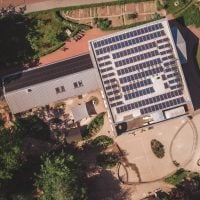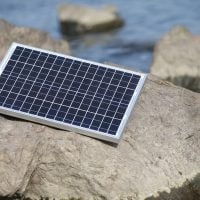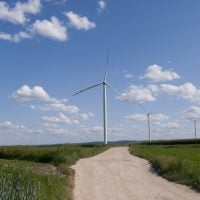Deadline: 22-Jun-23
The Micro-Financing Program (MFP) of the Global Environment Fund (GEF) is launching a Call for proposals to achieve the Sustainable Development Goals related to poverty reduction and local capacity building through strategic projects as an integral part of the protection of the environment protection.
This program is in its seventh phase of operation (OP7) and is more in the works by the UNDP. It is decentralized and based on national needs. It provides support for small-scale, community-based activities that address global environmental issues at the local level.
This call for proposals for the 2023-2024 period of OP7 also aims to provide the country, and in particular local communities, with levers by promoting. The appropriation of actions in the context of the COVID 19 pandemics and the maintenance of Choléra in all regions of the country.
Objectives
The objectives of the Small Grants Program is the protection of the global environment through microprojects protecting the environment in the following five thematic areas: climate change, biodiversity, land degradation, persistent organic pollutants and international waters by financing micro-projects that provide global environmental benefits.
Areas of Intervention
Five priority areas are eligible:
- Conservation of biodiversity (important, vulnerable or threatened animal and plant species; ecosystems of global interest such as national reserves and parks, etc.);
- Mitigation of climate change (by promoting forms of renewable energy such as solar or wind energy, biofuel production, etc.);
- Protection of international waters (such as fisheries threatened by pollution and overfishing);
- Prevention of land degradation (mainly desertification and deforestation);
- Elimination of persistent organic pollutants (mainly in agriculture where unregulated import and use of pesticides is common.
Funding Information
- The requested amount must not exceed US$50,000;
Strategic axes for OP7
The PMF/GEF Haiti Strategy for the Seventh Operational Phase of the Program is based on the following axes:
National Priorities for OP7
- Community conservation. Terrestrial/seascape in connection with the National System of Protected Areas (SNAP);
- Innovative Intelligent Agroecology in a context of climate change in connection with the strategic documents adopted: PANA, CDN; NAP
- Co-benefits of access to low-carbon energy;
- Local and global chemical substance coalitions;
- Platforms for CSO-Government dialogue;
- Social inclusions with emphasis on women and young people.
- Capacity Development.
- Support for achieving the Sustainable Development Goals (SDGs).
Project Funding Criteria
- Actions must focus on one or more concrete actions whose impact can be measured as soon as the project activities are completed;
- Express clearly and precisely how the project activities will contribute to the global environmental protection;
- The project activities must contribute to sensitizing the population on global environmental issues through capacity building and the exchange of experiences;
- The project must have an impact on the standard of living of the population and contribute to the reduction of poverty of the communities involved, through the adequate management of local environmental resources;
- Any technological innovation can be envisaged within the framework of the projects;
- The project activities must be able to be replicated in other communities
- If it is a productive activity of an economic nature, it is desirable to demonstrate the feasibility of the project through a simple management plan and revenue forecasts as well as the existence of a market;
- Community participation in different project activities should be encouraged (identification of project idea, project development, execution, monitoring and evaluation);
- The submitting organization must be able to have the skills enabling it to properly carry out the project activities; if not, identify in the project description how this will be corrected;
- The perspective of social inclusion (the issue of women and young people) must be taken into account in all phases of the project so as to seek parity in the participation of men and women, elders, young people and children;
- The bidding organization must be physically present in the intervention area of the activities of the project.
- It is desirable that there be a counterpart to the financing of the project which can be in kind or financial.
- The implementation of project activities should not exceed two years;
- Only one proposal will be accepted for funding per grassroots community organization. NGOs however can provide technical assistance to more than one group if they have the technical capacity to do so.
For more information, visit GEF.









































